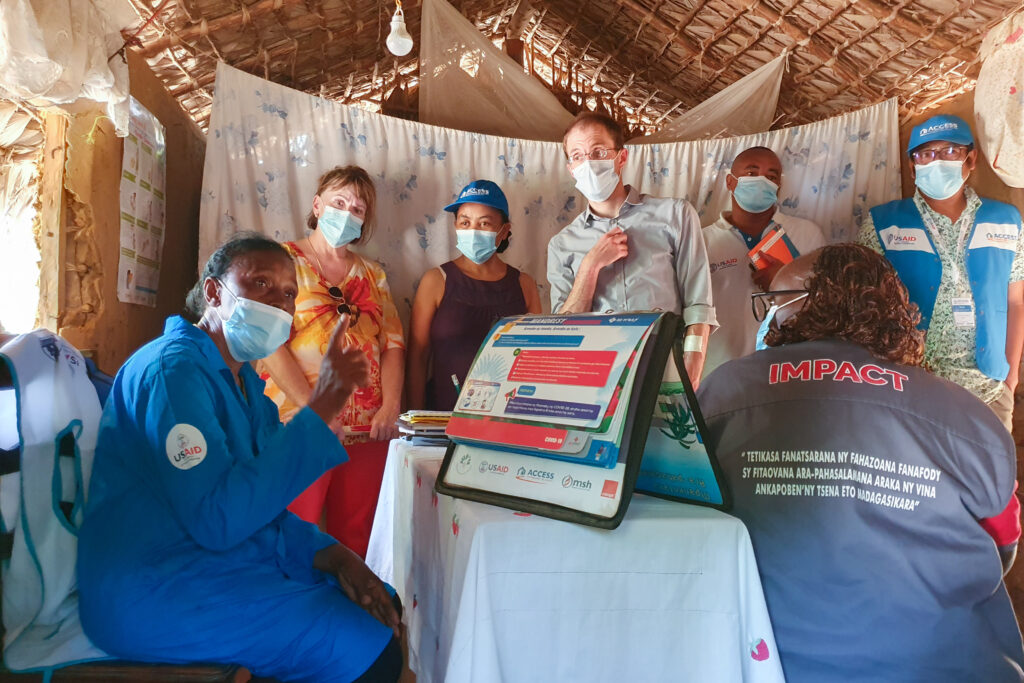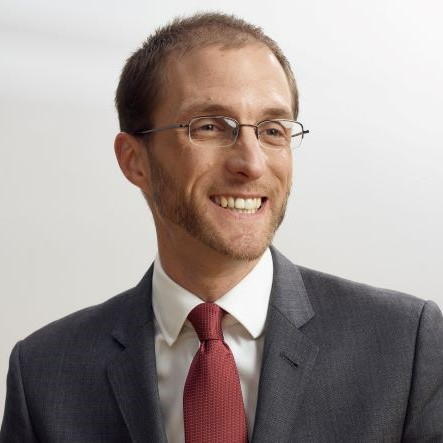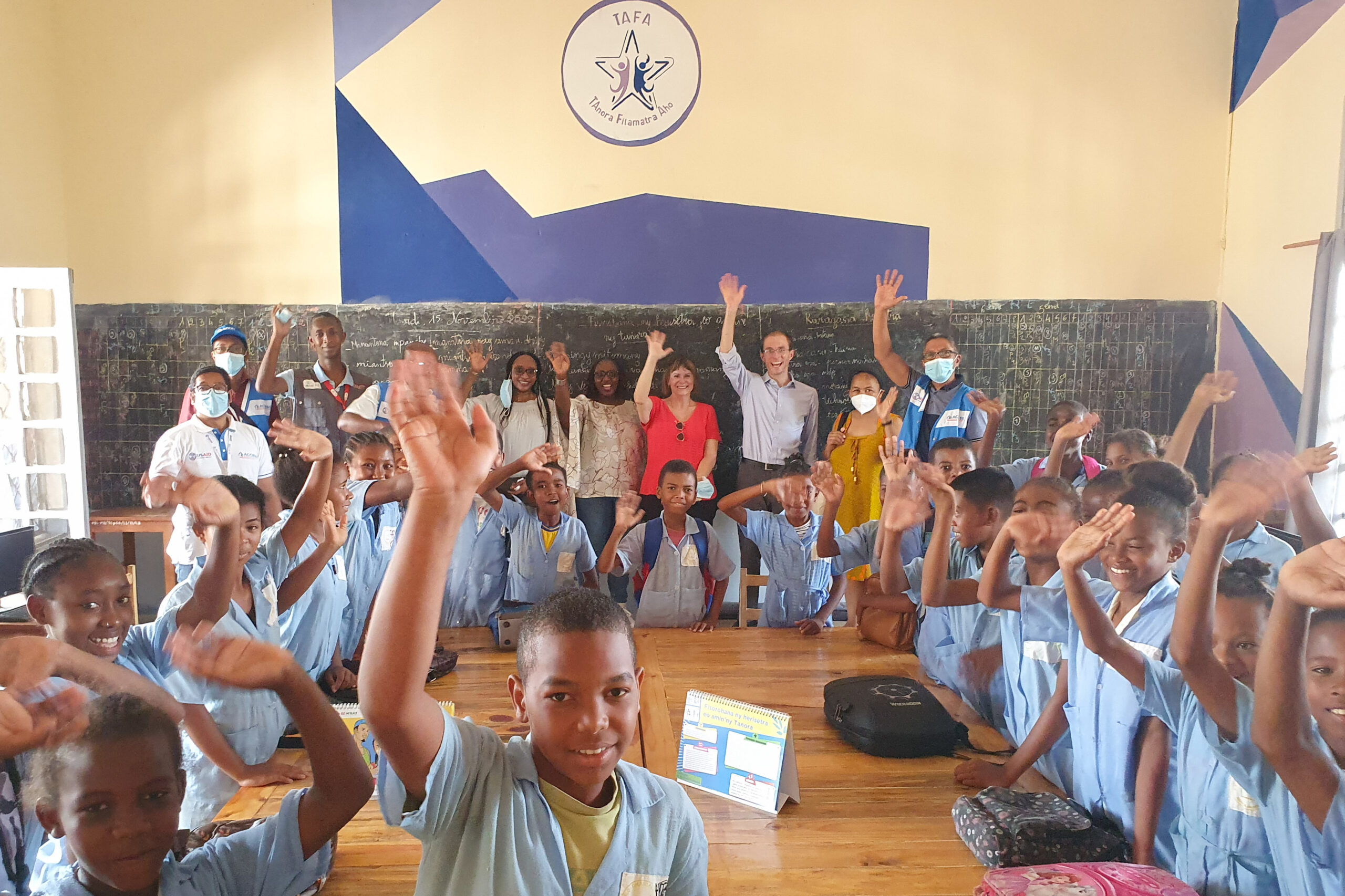The Obligation of Hope: Reflections on One Year at MSH
The Obligation of Hope: Reflections on One Year at MSH
By Dan Schwarz, MSH Vice President of Global Health Systems Innovation

It was sunny on the day in 2006 that Rodwell died. I was working in the male ward of the hospital’s inpatient building when I heard the Head Matron sobbing over the tragic news. The hospital team had lost a core member, his children had lost their father, the community had lost one of its proudest advocates, and I had lost my friend.
Rodwell had been one of the first people to receive antiretroviral therapy (ART) to treat his HIV as Zimbabwe launched its first rural district hospitals in 2005. He was, in the parlance of the time, a miraculous example of the “Lazarus effect” of ART—an emaciated, nearly dead man brought back to life. Within six months, he was thriving, forming the “Positive and Proud” community advocacy group and returning to work as the beloved hospital security guard. He traveled to South Africa to speak at global conferences, and he appeared in blogs and journals around the world. He was, in every way, the example of success of the movement to expand access to treatment. He gave us all hope for the future, for a different world to come.
But let’s be clear: Rodwell didn’t die of Stage IV AIDS, TB, or any of the other opportunistic infections he had. He died of essentially a bad asthma attack. TB had damaged Rodwell’s lungs, and his breathing worsened throughout 2005 and 2006 even though he had completed TB therapy. He started having “attacks,” as he called them. He struggled to breathe while lying down at night and had difficulty giving speeches without getting winded.
One day in mid-2006, when his lungs couldn’t take it anymore, we lost him.

But no, that’s not right either. Rodwell didn’t die of an asthma attack. He died—with a fully suppressed viral load and a strong CD4 count—of a lack of access to high-quality, integrated primary health care (PHC).
Rodwell died because, despite having access to the best available ART in the world at the time, neither our local hospital nor any others in Zimbabwe had inhalers for his lungs. Such treatments—so common in wealthier countries—were unaffordable for low- and middle-income countries, according to common opinion, and therefore it wasn’t realistic to expect them to be provided to someone like Rodwell. Treat his AIDS and TB? Perhaps. Address his PHC needs and manage his ongoing chronic disease? Impossible.
On that sunny afternoon, with my shirt still wet from Rodwell’s wife’s tears and his dog at my side, I took a walk. I simply couldn’t be in the hospital at that moment. I wandered through the village for hours, until long after nightfall. I sat under the jacaranda tree that Rodwell and I always used for midday shade as we ate our lunch together. And I mourned. For Rodwell, for his family, and for our world at large. A world in which we still could not fathom equitable access to high-quality PHC for all.
June 2023 marked 17 years since Rodwell died and one year since I joined Management Sciences for Health (MSH). Both anniversaries weigh heavily on me as I write this. Joining MSH’s leadership has been—unequivocally—one of the greatest honors of my life thus far. It is an enormous privilege to see the work MSH has been doing for decades and to play a part in developing its direction for the future.
The past year has been full of inspiration for me. I have stood alongside many of my colleagues, learning from their examples about how MSH is strengthening the world’s health systems every day. I have been humbled by our work supporting gender-based violence survivors in Benin who are creating new lives for themselves and hope in their communities. I have learned from community health workers in rural Madagascar of the amazing progress they’ve made in the past few decades in providing care to their communities. I have listened to senior government officials in Manila describe the significant changes MSH helped them make within their drug regulatory agencies. I have sat alongside health workers in Lubumbashi who are leading their infection prevention and control and antimicrobial stewardship committees dedicated to improving their clinical practices. I have toured model pharmacies in Dhaka, which helped me better understand responsible prescribing and private pharmacy engagement in public health campaigns. I have watched in awe as human and animal health workers collaborated on One Health strategies in Dakar—a truly impressive feat of interdisciplinary team building! I have attended vaccination days at mosques in Côte d’Ivoire, struck by the partnership between faith-based leaders and the public health system. And, most recently, I had the honor of joining community meetings in rural Nigeria, where steps to improve engagement of pregnant women in malaria prevention programs were discussed.
From all of these moments, I have two key takeaways. The first is that integrated, person-centered PHC systems are more important than ever. MSH has been working to strengthen the capacity of PHC systems for decades, yet the mandate is no less imperative now than it was when the Alma Ata Declaration was adopted in 1978. Rodwell—and countless others—died with access to excellent verticalized HIV care but lacking the fundamental PHC that these systems can and should provide. My colleagues, and the community members we serve every day, have reinforced that message to me countless times in the past year. I am grateful for their leadership.

My second takeaway is that these strong health systems can and must be designed, led, and managed locally by the people, for the people, and at all levels—from community through district and regional to national governance. MSH and other global health organizations can and should continue to partner in strengthening the capacity of these systems, but local partners must be in the lead. For too long, global health development has been led by the Global North, by international nongovernmental organizations (INGOs), and by vested political interests from abroad. Those programs are the same ones that failed Rodwell but still claimed success because of his suppressed viral load. Rodwell’s family didn’t care what his viral load was; they cared that they had lost their father.
As we look to the future, INGOs must redouble our efforts to be partners to these communities, strengthening these local systems with their own leadership and vision for the future. Rodwell’s family knows what their community needs. It is our responsibility to help support them in that journey.
The future of our world—depending on who you ask—could be viewed as bleak. We face war, hyper-nationalistic governance, xenophobic and racist policies, climate change, an unsustainable level of population growth, and an overall sense of fragility rarely seen in human history. My son’s generation may be the first in quite some time to inherit a world that is worse off than that of their parents.
And yet, despite all that, I have hope. Once, at the end of a sad day in rural Nepal, my close friend and mentor Dr. Paul Farmer once told me that it’s my obligation to continue to hope. “You have so much privilege, you’re not entitled to give up hoping. The lives of those without depend upon your hope and your continued persistence to build a better world.”
Collectively, we all have both an opportunity and a moral imperative: the world needs this kind of hope, now more than ever. Whether we rise to this occasion, to this moment in history, is up to each of us. My son’s generation and Rodwell himself are watching; they will be our judges. And I, for one, am not willing to be remembered as failing them.